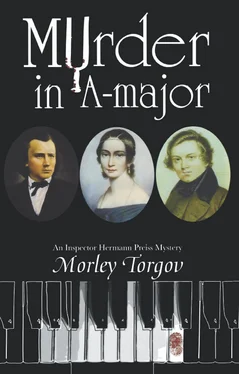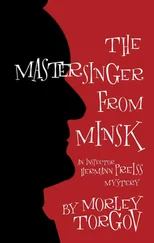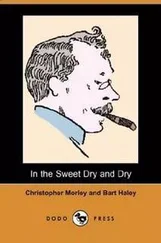Morley Torgov - Murder in A-Major
Здесь есть возможность читать онлайн «Morley Torgov - Murder in A-Major» весь текст электронной книги совершенно бесплатно (целиком полную версию без сокращений). В некоторых случаях можно слушать аудио, скачать через торрент в формате fb2 и присутствует краткое содержание. Жанр: Исторический детектив, на английском языке. Описание произведения, (предисловие) а так же отзывы посетителей доступны на портале библиотеки ЛибКат.
- Название:Murder in A-Major
- Автор:
- Жанр:
- Год:неизвестен
- ISBN:нет данных
- Рейтинг книги:5 / 5. Голосов: 1
-
Избранное:Добавить в избранное
- Отзывы:
-
Ваша оценка:
- 100
- 1
- 2
- 3
- 4
- 5
Murder in A-Major: краткое содержание, описание и аннотация
Предлагаем к чтению аннотацию, описание, краткое содержание или предисловие (зависит от того, что написал сам автор книги «Murder in A-Major»). Если вы не нашли необходимую информацию о книге — напишите в комментариях, мы постараемся отыскать её.
Murder in A-Major — читать онлайн бесплатно полную книгу (весь текст) целиком
Ниже представлен текст книги, разбитый по страницам. Система сохранения места последней прочитанной страницы, позволяет с удобством читать онлайн бесплатно книгу «Murder in A-Major», без необходимости каждый раз заново искать на чём Вы остановились. Поставьте закладку, и сможете в любой момент перейти на страницу, на которой закончили чтение.
Интервал:
Закладка:
The truth is that the sudden news of my disinheritance came as nothing more than a very glancing blow. After all, when there's nothing to gain, there's nothing to lose. But the revelation that my mother's egg had been fertilized by some random sperm from out of town left me profoundly unsettled not only throughout the train ride to Hamburg that night but for the many years that followed. To this day I am nagged by doubts about my origins and the taint of illegitimacy.
That I chose to remain a bachelor, despite the odd flirtation now and then, was directly attributable to that conversation at the railway station in Zwicken. Given my parents’ incessant wrangling, was it any wonder that I came to regard the temple of marriage as being no more reliable than a tent in a hurricane.
Bachelorhood had its positive side in my case. It left me free to immerse myself in my work in the field of crime in general, and homicide in particular. Not for me the scheduled life…supper at six, bedtime stories for the children at seven, pipe and slippers at eight, lights out at nine. When most men were sitting down to dine, or to listen to the end-of-the-day chatter of their children, or lie snugly against the flannel of their wives’ nightclothes, I found myself bending with boundless curiosity over a bludgeoned corpse, or examining a knife planted like a flagpole in someone's chest, or figuring out the trajectory of a bullet lodged in someone's skull.
There is an irony here, of course. For one who was warned to avoid surprises, I had made it my occupation to deal with those very things. The surprises I dealt with, however, happened to others , not to me. This fact made all the difference. No matter how heinous the crimes I encountered, I was able to view them dispassionately. Objectivity is the soul of professional crime investigation, and mine had never faltered.
In short, my work was my life.
Still, there came a point in each day when I was able to lay down the tools of my trade and say “Enough.” It was at such times that, in effect, I managed to hand the crime back to society, as one hands back to its mother an infant that has done something bothersome in its under-clothing. Once removed, if only for a few hours, from the jigsaw puzzles of my profession, I was at liberty to immerse myself in a very different kind of life, a life of good food, good wine, great music, and the company of a beautiful woman, namely my cellist friend Helena Becker.
And it was the same Helena who now-to my complete astonishment-interrupted my thoughts about the Schumanns and my own career with a discreet knock on my door.
“Do forgive this intrusion, Hermann,” she said as she swept into my suite of rooms. Her face was flushed, and there was an air of unbridled excitement about her. Before I could take her cape, she circled her arms about my waist and pulled me to her. My first instinct was to laugh with pleasure. In the several years we had known one another, I had seldom seen her in such a state of elation.
“Don't tell me, Helena, let me guess,” I said, inhaling her perfume and the natural clean scent of her hair, “you've been to the opera to see Wagner's Lohengrin again. I know how that opera always thrills you, especially the love scenes.”
Like a coquette, she fluttered her eyelashes. “Wrong,” she said, not letting go of me. “Guess again, Hermann.”
“You were at an orchestral concert, and they played Mendelssohn's Italian Symphony . That's it. The final movement's enough to make anyone want to do something wild and wicked.”
“Wrong again.”
I have to admit that at this hour of the night, my enthusiasm for playing a guessing game was growing thin. “I'll guess once more,” I said, trying to look stern, “and if I'm incorrect this time, I'm going to throw you out into the cold street. Now, then, I've heard a rumour that that dashing Hungarian Liszt is in Düsseldorf and that Baron Hoffman and his big fat frau were throwing a party to honour the man…to which, incidentally, I was not invited. I take it, Helena, that you were?”
Helena gave me a generous kiss on the cheek. “I love it when you play clever detective. Yes, Franz Liszt was at the Hoffmans’, and he played his piano transcription of one of Wagner's overtures. My God, Hermann, the passion…I can scarcely describe it…it is so-so arousing!”
The minutes that followed were dizzying. I found myself occupying the space ordinarily occupied by Helena Becker's cello. I could feel her right arm sliding back and forth across the small of my back, as though she were wielding her bow. With her left hand, she fingered the notes, as it were, up and down my shoulder blades, digging deeply.
But when I closed my eyes, it was not Helena Becker's face I was imagining.
It was the face of Clara Schumann.
Chapter Four
The following morning, eager to be alone with my private thoughts, I made a point of avoiding the ritual daily briefing with Commissioner Schilling, my immediate superior, and climbed the three flights to my office at the Constabulary by an out-of-the-way rear set of stairs. My case load happened to be unusually light. For some reason, the crime rate for the City of Düsseldorf regularly fell this time of year, suggesting that a severe drop in temperature could always be relied upon to freeze evil impulses. This gave me time to ponder the problem of Robert Schumann.
How best to deal with it?
More to the point, should a senior police official even bother to become involved?
In the hope of resolving these questions, I arranged to meet Helena for lunch at her favourite restaurant in Düsseldorfs central market area, Schimmel's Coffee House on Linkstrasse. I selected a table in a quiet corner where we could talk and not be overheard. “Helena,” I said, “I need a favour.” Leaning closer to her, I said, speaking quietly, “What I'm about to disclose must remain absolutely confidential. It concerns the possible commission of a crime. Strictly speaking, it is police business. But the challenge here is so extraordinary that I must look outside the police community for assistance. You see, Helena, the victim-if one can call him a victim at this stage-is none other than Robert Schumann.”
I went on to describe in detail my initial conversation with Schumann as well as with his wife, Clara.
Helena, at this point indifferent to the food that lay before her, listened attentively, paused to think about it for a few moments, then said, “I'm sorry, Hermann, but I am having difficulty taking this seriously.” I detected a slight twitch at the corners of her mouth, as though she were attempting to suppress a laugh. “Let me tell you something,” she said. She made a quick survey of her surroundings to make certain she was not being overheard. “In the musical world, and even beyond-though apparently the news has not yet reached the Düsseldorf Police Department-Robert Schumann has long been considered half mad. I find it astounding that you of all people-a man who knows what lies beneath every single cobblestone in Düsseldorf-don't know all the stories that have circulated for ages about the Maestro. I find it even more astounding that you care enough to give this craziness as much as an hour of your time.”
I took a moment to compose a careful reply. “It's because, Helena, for the first time in my career, I am dealing with people… personalities …who do not fit into the underworld of shabby criminals and victims I'm accustomed to dealing with. Ninety-nine out of a hundred times, I find myself in a sense rubbing shoulders with thieves, prostitutes, murderers, embezzlers…men and women I am reluctant to touch even when my hands are gloved! And along comes Robert Schumann, my one case in a hundred, so to speak, that doesn't involve some disgusting form of human garbage-”
Читать дальшеИнтервал:
Закладка:
Похожие книги на «Murder in A-Major»
Представляем Вашему вниманию похожие книги на «Murder in A-Major» списком для выбора. Мы отобрали схожую по названию и смыслу литературу в надежде предоставить читателям больше вариантов отыскать новые, интересные, ещё непрочитанные произведения.
Обсуждение, отзывы о книге «Murder in A-Major» и просто собственные мнения читателей. Оставьте ваши комментарии, напишите, что Вы думаете о произведении, его смысле или главных героях. Укажите что конкретно понравилось, а что нет, и почему Вы так считаете.












